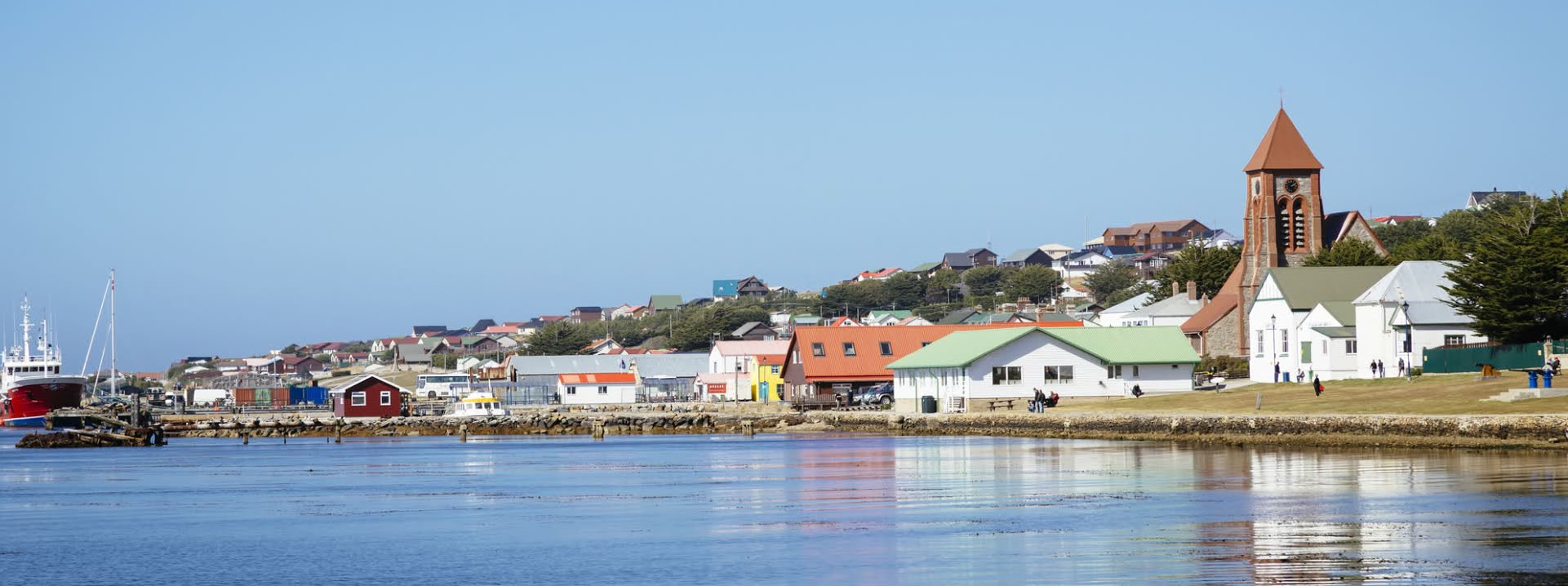Ian McDonald MOD Spokesman of the Falkland Conflict in 1982
IAN MCDONALD (: 29 March 1936 – 28 March 2019) MOD SPOKESMAN ON THE FALKLAND CONFLICT IN 1982
Ian McDonald was the official spokesman of the Ministry of Defence (MOD) during the Falklands conflict in 1982. His role was controversial because of the degree of censorship and control that the UK Government sought to impose on the public reporting of the war, impossible now to achieve with the advance of satellite communications and social media. His idiosyncratic style – described as sepulchral and devoid of emotion yet also as calm, and reassuring – brought him detractors and supporters (and, as a bachelor, female suitors). But overall, he gained the trust of the British public, who were not taken in by the excitable rhetoric of the Argentine Junta. A lifelong civil servant, his career in the MOD ended on a sour note following criticism of him in the Scott inquiry report, published in 1996, into the sale of arms to Iraq. After retirement, he enjoyed the quiet of his villa in Umbria, Italy.
Born in 1936, the son of a successful businessman, Ian McDonald took law at Glasgow University followed by postgraduate studies in English Literature and Classical Greek. After spells in the army working as an interpreter in Cyprus, in a law firm in Scotland and a year as a teacher in Karachi, Pakistan, he joined the MOD as a civil servant. He rose steadily through the civil service grades before heading MOD’s recruitment and pay section. In 1979, despite having no experience in media relations, he was appointed deputy chief of MOD’s public relations unit.
In 1981, the post of chief of MOD’s PR unit became vacant. Ian McDonald applied for the post but was passed over in favour of a professional PR expert, Neville Taylor, who was then head of PR in the Department of Health and Social Security (DHSS) and the preferred candidate of Bernard Ingham, Mrs Thatcher’s powerful press secretary at No 10. Because of work pressures in DHSS, Neville Taylor’s transfer to MOD was to be delayed and it was agreed that Ian McDonald would continue as acting chief of PR, MOD until June 1982.
So, when on 2 April 1982 the Argentines invaded the Falkland Islands, Ian McDonald was thrust into the limelight as MOD’s spokesman for the war. The media wanted enhanced and extensive access, on the ships going down to the Falklands, on Ascension Island, and in Whitehall. Yet amongst the Chiefs of Staff, worried about the risks of going to fight a war 8000 miles away with no assurance of success, there was a strong concern about military security. It was therefore decided that all ‘off the record’ briefings previously granted to defence correspondents should be stopped with information released only through official statements delivered by Ian McDonald, which were carried on national and international news. He decided to adopt a measured, unemotional tone in his delivery and to dampen speculation by sticking strictly to the content of the press statements. Media correspondents chafed at this but his quirkiness transformed him into a national celebrity, often lampooned by cartoonists, both critically and affectionately. Heavily bespectacled, dark suited and with a penchant for erudite aphorisms, he gained the public’s confidence and the grudging respect of the media.
The conflict between the need for security and the media’s pressure for more openness became a subplot to the actual war itself (as well as the subject of a parliamentary inquiry afterwards). Even within MOD and the military units involved in the Task Force, there were tensions over the right way to handle the media. Neville Taylor, who had decided to transfer early because of the conflict, took up duty in the MOD on 13 April 1982 only to find that matters relating to the Falklands were to be kept outside his remit ‘for the time being’. Bernard Ingham, himself a master of background briefings, argued for greater transparency. Sir Frank Cooper, MOD’s senior civil servant, was persuaded to resume confidential briefings for the press, the first such was held on 11 May 1982 and twice a week thereafter. Neville Taylor assumed responsibility for all MOD’s PR policy on 18 May although Ian McDonald continued to act as MOD spokesman until the emergency press centre was closed down on 18 June 1982.
After the conflict, Ian McDonald left the PR world to become head of the Adjutant General’s secretariat and then in 1986 head of the Defence Export Services Secretariat dealing with UK arms sales policy abroad. Following the first Gulf War in 1991, he became embroiled in the public revelation that the UK Government had endorsed the sale of arms by British companies to Saddam Hussein’s regime and was criticised for in Sir Richard Scott’s report of his judicial inquiry published in 1996. He therefore left the service on retirement at age 60 on a sour note.
A confirmed bachelor, Ian McDonald spent much time in retirement at his villa in Umbria, Italy. He died, aged 82, on 28 March 2019, a day before what would have been his 83rd birthday.
Information drawn from obituaries in the Daily Telegraph and Glasgow Herald as well as Robert Harris’s book “Gotcha! The Media, the Government and the Falklands Crisis” published by Faber & Faber 1983.



